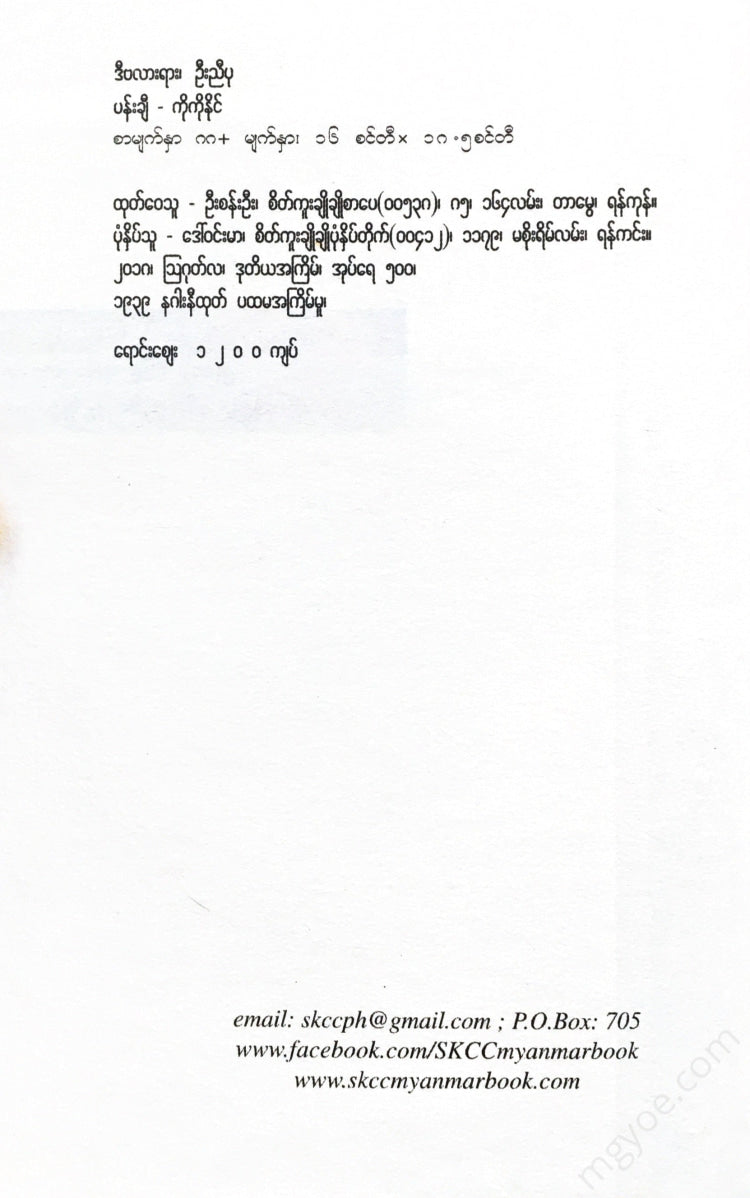စိတ်ကူးချိုချိုစာပေ
U Nyi Pu - Deva Bala
U Nyi Pu - Deva Bala
Couldn't load pickup availability
Chapter (1)
The descent of the Irish into slavery
In reading the autobiography of the Irish President, "De Blare", it is necessary to briefly understand the history of Ireland, which was raised from the oppressive rule of the English, through various hardships, both physical and mental, to the current state of the "Irish Free State".
The island of Ireland and the island of Great Britain, where the English live, are close together, but the Irish and the English are fundamentally different. The original Irish were the "Ce (la-s)" people, and while the people of the British Isles, now called the English, were still very savage, the Ce (la-s)" people had already become quite civilized. At that time, the island of Ireland was ruled by separate kings, who fought each other for power and glory. Among them, the king who ruled the "Mita (sa)" and "Konnog" territories was the most powerful and took the title of "High King" (Haiking).
At that time, King Henry II was reigning in England, and during his reign, the Irish and English began to fight. The reason for this was that a vassal in Ireland, the King of Leinster, in order to dissuade his lord, the King of Leinster, from rebelling against his lord, the King of England , called on Strongbow, also known as Alpenbroch, one of the greatest dukes of the English King Henry, to join forces and fight. Although they were successful, Strongbow was too powerful in Ireland. King Henry, who was not afraid that his duke would be too powerful, did not attack Ireland when he went to attack Ireland, and instead left Strongbow as his governor-general.
This was the first time the Irish fell into the hands of the English. Strong Bo built large and strong castles and gave the kingdom to his successors, who made them great feudal lords, and the native Irish became their slaves and oppressed.
This method of government led to further religious persecution. When the English abandoned the Protestant religion, the Irish remained in the Protestant religion and were restricted by various religious laws. The Protestants were severely oppressed, not being allowed to hold any office, not being allowed to appear before a lawyer, and, worst of all, not even being allowed to own a good horse. At that time, the English and Scots came to live in Ireland and owned property, and the Irish left their country and emigrated in large numbers to America.
In 1845, the potato crop was destroyed nationwide, and many died after the famine. The old landowners also died and the land passed into the hands of new people, who demanded increasing rents year after year, so that the workers had to give up their seeds, buffaloes, and cattle and leave empty-handed.
Thus, for many years, the Irish people had not found a moment of peace, but had lived their lives in strife and oppression. In the minds of the Irish people, the landlord system came to be regarded as their death knell. The landlords and the English government on one side, and the Irish political leaders on the other, were constantly at war. From the turn of the 19th century onwards, many secret societies emerged.
Furthermore, one of the first initiatives to address the national issue was the revival of the Irish language, initiated by individuals such as Sage, Lady Grey, and Yee (T)". Initially, this initiative was intended to promote language and literature, but later, when political considerations intervened, it began to emerge as a means of achieving national independence.
Growing up in such a harsh environment, the landowners' cruelty, the hardships and suffering of the people would always be etched in his mind. In addition, he would remember the famine and the deaths of many, including children, due to lack of food. This resentment would also grow up in him from a young age.













